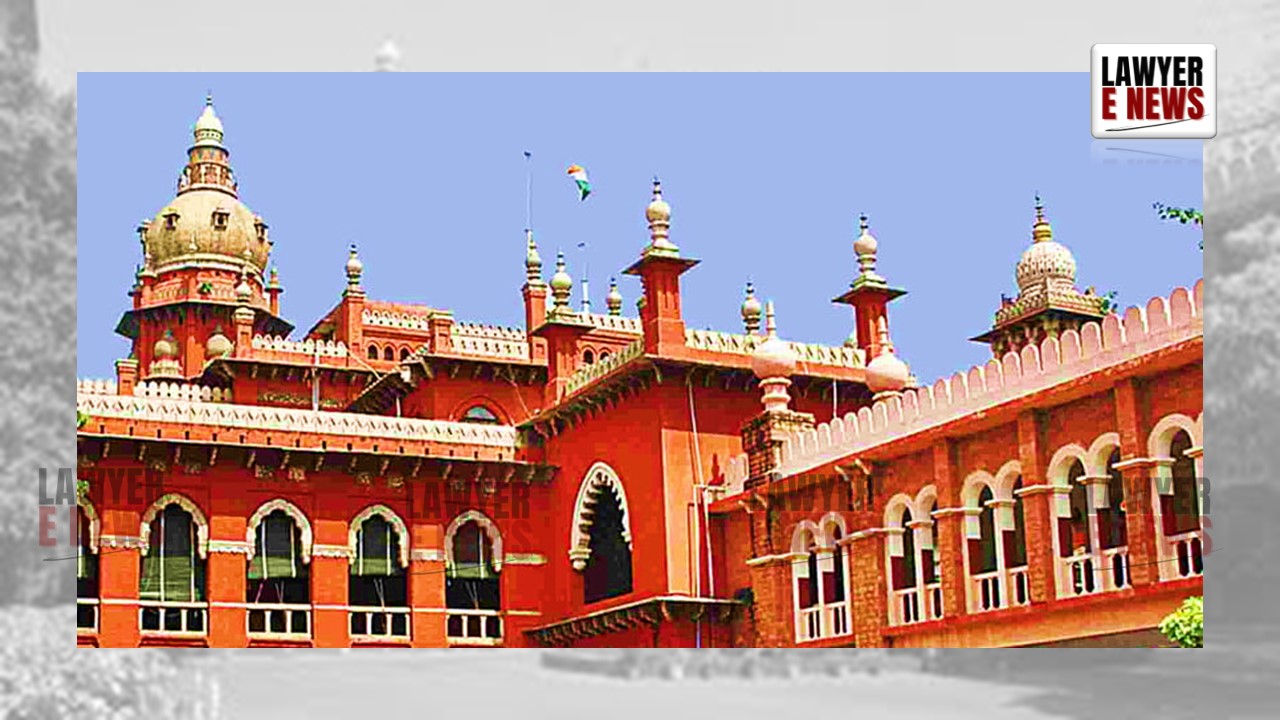-
by sayum
14 February 2026 2:22 PM



On January 2, 2025, the Madras High Court, in S. Ve. Shekar v. State, upheld the conviction of former MLA S. Ve. Shekar under Sections 504 and 509 of the Indian Penal Code, 1860, and Section 4 of the Tamil Nadu Prohibition of Harassment of Women Act, 2002. Justice P. Velmurugan dismissed the Criminal Revision Petition (Crl.R.C. No. 497 of 2024) challenging the judgment of the trial court, confirming that the petitioner had forwarded a derogatory message against women journalists on Facebook.
The Court rejected Shekar’s argument that his forwarding of the post was unintentional and unaccompanied by criminal intent. The petitioner’s conviction and sentence were upheld, and the trial court was directed to secure his custody to serve the remaining sentence, with a 90-day stay to allow for filing a Special Leave Petition.
Apology Does Not Erase Harm to Reputation of Women Journalists
The Court observed that the derogatory Facebook message forwarded by the petitioner targeted women journalists, including P.W.2 (the de facto complainant), with the intent to humiliate them. While the petitioner claimed he deleted the post and tendered an apology, the Court emphasized that:
"Mere tendering of an apology is not sufficient. Once the contents of the message are released and seen by the public, it certainly degrades the image and reputation of the victims."
Justice Velmurugan held that the apology could not undo the harm caused to the complainant and other affected women journalists.
Electronic Evidence: Admissibility Without Section 65-B Certificate
The petitioner argued that the prosecution failed to comply with Section 65-B of the Indian Evidence Act, as no certificate authenticating the screenshot of the forwarded message was produced. However, the Court rejected this contention, holding that:
• The prosecution proved its case beyond reasonable doubt through witness testimonies and documentary evidence (Ex.P-3 screenshot).
• The petitioner’s admission of forwarding the message and subsequent apology rendered the certificate under Section 65-B non-mandatory in this specific case.
"The cross-examination of P.W.2 and Ex.P-3 sufficiently establish the petitioner’s culpability. The absence of a Section 65-B certificate does not affect the evidentiary value of the screenshot in this case."
Justice Velmurugan reiterated the limited scope of revision under Sections 397 and 401 of the CrPC, stating that revisional courts are not required to reappreciate evidence unless there is perversity or illegality in the trial court’sfindings.
"The revisional court’s scope is confined to examining whether there is any legal bar or perversity in the appreciation of evidence. In the present case, the prosecution has proved its case beyond reasonable doubt, and there is no infirmity in the trial court’s judgment."
Case Background
The prosecution alleged that S. Ve. Shekar, a former MLA, forwarded a derogatory message against women journalists on Facebook, targeting P.W.2, a prominent journalist. The post, deemed offensive and degrading, sparked public outrage and protests. The Assistant Sessions Judge, Special Court for MPs and MLAs, convicted the petitioner and sentenced him under Sections 504, 509 IPC, and Section 4 of the Tamil Nadu Prohibition of Harassment of Women Act.
Shekar challenged the trial court’s judgment, arguing procedural lapses and lack of criminal intent.
Key Observations by the High Court
1. Forwarding Equals Responsibility:
The Court rejected Shekar’s claim that he was unaware of the message’s contents. Justice Velmurugan stated:
"Knowing fully well the consequences, the petitioner forwarded the message. This act amounts to deliberate cyber harassment."
2. Electronic Evidence Admissibility:
Despite the absence of a Section 65-B certificate, the prosecution’s evidence, including Ex.P-3 (screenshot) and witness testimonies, was deemed sufficient to establish guilt.
3. Mens Rea Established:
The Court noted that forwarding a derogatory message, coupled with the petitioner’s apology, proved awareness and culpability.
4. Lack of Perversity:
No procedural lapses or legal infirmities were found in the trial court’s judgment.
The High Court upheld the trial court’s conviction and sentence. The trial court was directed to secure the petitioner’s custody for serving the remaining sentence, with a stay on execution for 90 days to allow for the filing of a Special Leave Petition before the Supreme Court.
This judgment underscores the accountability of individuals for forwarding objectionable messages on social media, particularly when the content targets women or marginalized groups. The Court’s emphasis on the irreversibility of harm caused by such messages highlights the seriousness of cyber harassment in the digital age.
Date of Decision: January 2, 2025
